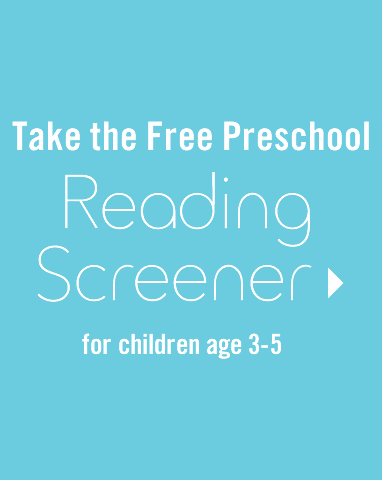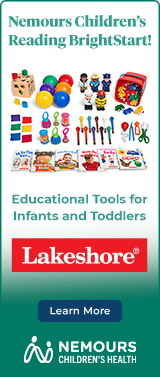 Phonological Awareness Includes Understanding That:
Phonological Awareness Includes Understanding That:
- spoken words are made up of syllables and sounds that we can separate and blend
- some words start with the same sound
- some words rhyme
Some Key Phonological Awareness Skills:
- rhyming, as in red/bed/head or hold/cold/told
- alliteration, as in the tongue twister, Peter Piper picked a peck of pickled peppers
- syllable awareness, or saying words slowly by separating longer words into parts and then saying the parts quickly, as in base – ball = baseball
- identifying beginning or ending sounds in words, as in bat begins with the sound b, b, b
- identifying individual sounds in words, as in b – a – t = bat; bat = b – a – t (also called phonemic awareness)
Phonological awareness is a specialized type of listening skill that is necessary for children to learn to read. Being able to identify and play with these word parts is essential for future success with phonics. A child’s emerging phonological awareness starts with enjoyment of stories, poems and songs that have rhyming or alliteration. Starting around age 3 or 4, your child will begin to show increasing skill at playing with words by changing sounds or syllables or telling you about his discoveries about sound patterns in words. At that point, you can start introducing phonological awareness activities that directly focus on breaking apart and blending word parts.
Tips to Help Your Child With Phonological Awareness
- Reading stories, poems or nursery rhymes that use rhyming words and alliteration is great way to introduce phonological awareness.
- Play with language through silly rhyming or alliteration songs and games. Even infants and toddlers enjoy listening to language that has repeating elements at the beginning or end of words.
- Clap, tap, jump or stomp one time for each syllable in a word or one time for each word in a sentence or nursery rhyme.
- Start with compound words that preschoolers may know, like cupcake, football and toothbrush. Use real or pretend objects or pictures to help your child remember the word you are focusing on.
- Use your child’s and family members’ or friends’ names to work on phonological awareness – names that rhyme (Pam/ Sam) or start with the same sound (Bill/Betsy).
View Examples of Phonological Awareness
https://youtu.be/zRUPFaCfbIE








